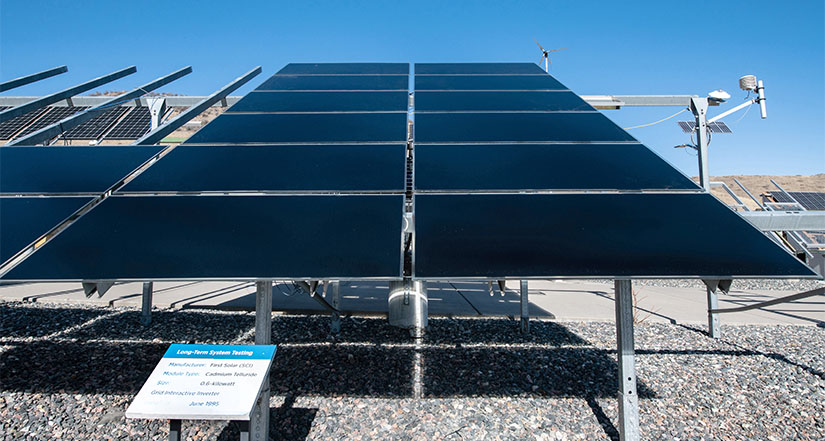Cadmium Telluride Accelerator Consortium Aims To Reduce Costs, Speed Deployment of Low-Carbon Thin-Film Solar Technologies
$20 Million Going To Support CdTe Research and Development

This week, U.S. Department of Energy (DOE) announced a new three-year consortium intended to accelerate the development of cadmium telluride (CdTe) technologies by lowering the cost and increasing the efficiency of the thin-film solar cells.
CdTe is the second most common photovoltaic (PV) technology in the world, after silicon. The thin-film technology has achieved a record 22.1% cell efficiency in converting sunlight into electricity and can be manufactured at costs that are competitive with silicon solar panels. Commercially produced CdTe panels also have the lowest carbon and water footprints and the fastest energy payback times of panels available today.
The CdTe Accelerator Consortium (CTAC) will work to enable cell efficiencies above 24% by 2025 and above 26% by 2030, while steadily reducing the per-watt cost of manufacturing.
The 22.1% record efficiency was achieved by First Solar in 2016. First Solar reported an average commercial module efficiency of approximately 18% at the end of 2020.
“CTAC will work to enhance U.S. technology leadership and competitiveness in CdTe PV and bring together leading organizations to impact the entire domestic CdTe supply chain,” said Nancy Haegel, director of the National Renewable Energy Laboratory's (NREL’s) Materials Science Center. “Research, manufacturing, and deployment of CdTe PV technology is a U.S. success story. CTAC investment and innovation will encourage future growth.”
CTAC will be led by the University of Toledo, First Solar, Colorado State University, Toledo Solar Inc., and Sivananthan Laboratories.
The consortium leadership was selected through a competitive solicitation released by NREL last year. The solicitation was for a CdTe technology development consortium that would expand domestic CdTe PV material and module production, support the domestic CdTe supply chain, and enhance U.S. competitiveness.
NREL will oversee the consortium, acting as a resource, support, and technical analysis center. The laboratory also will support CTAC in launching additional research efforts to meet targets set by the consortium’s technology road map.
A combined $20 million is going to support CdTe research, with $17 million going toward the consortium. The funding is provided by DOE’s Solar Energy Technologies Office, which works to lower costs, improve performance, and speed the deployment of solar energy technologies. Investing in solar technology is key to achieving DOE’s goals of cutting the cost of solar energy by 60% within the next 10 years, improving performance, and paving the way for a clean energy future.
Learn more about the CdTe Accelerator Consortium.
Last Updated May 28, 2025
